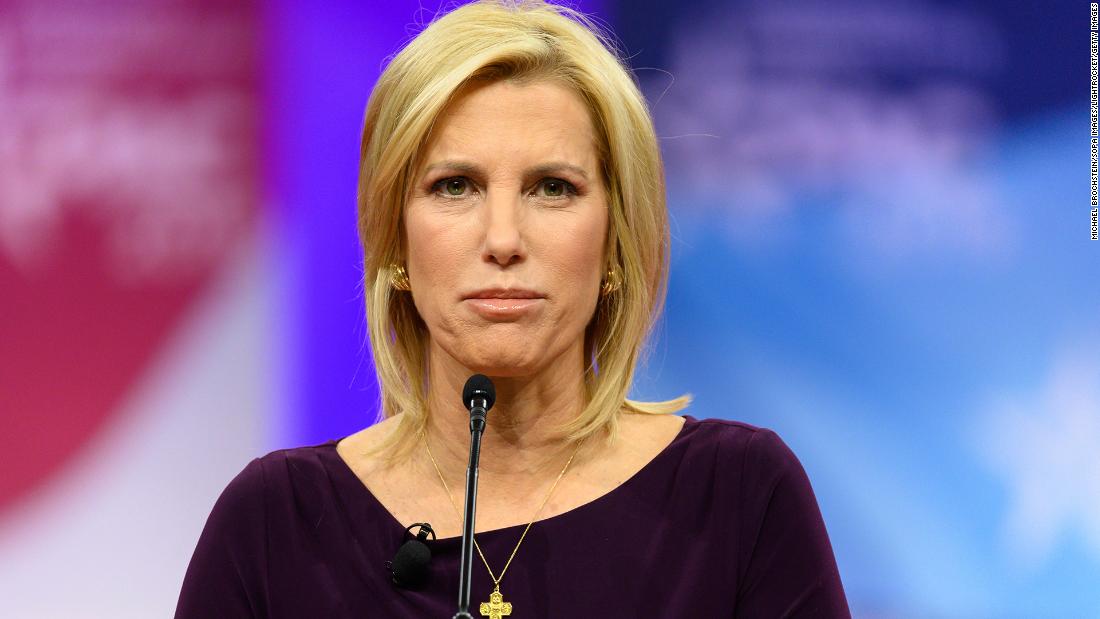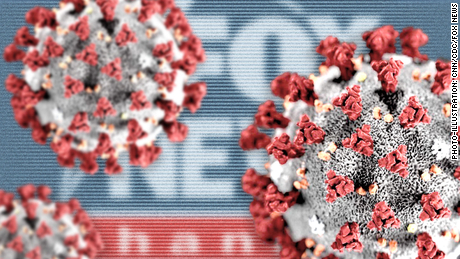Researchers reject Fox News host Laura Ingraham’s misuse of their studies to support mask denialism
But authors from both of these studies reject how Ingraham and other mask doubters have portrayed their work. Each of them told CNN Business that they fully support the recommendation from health experts that people wear face masks while out in public.
“I am disappointed because there are good reasons for people to wear masks,” University of Hong Kong professor Benjamin Cowling, who serves as the school’s division head of epidemiology and biostatistics and who was an author on one of the papers that Ingraham cited, told CNN Business when asked about how Ingraham was representing his work. “I’m not convinced about mandates, but I am disappointed there has been this encouragement not to wear masks when it’s a simple measure that can help.”
“There is a twilight zone between research and politics,” Copenhagen University Hospital professor Henning Bundgaard, the lead author of the Danish study, said to CNN Business in a separate interview. “People are using the science in different ways because they have different motives.”
But Ingraham, who has no background in medicine or virology, is one of the most prominent members in the larger right-wing media chorus that has politicized the pandemic and repeatedly rejected the consensus from the scientific and health community on various ways to curb the spread a virus that has so far killed more than 310,000 people in the US.
A Fox News representative did not comment for this story.
“It’s the right thing to do”
It is true that Bundgaard’s study did not find a statistically significant result showing that face mask use protected the wearer, though it did show some minor benefit.
But what Ingraham left out in discussing it is that recommendations about wearing a face mask have always been about the idea that the mask would primarily benefit people other than the person wearing the mask by reducing the risk they could transmit the virus. Bundgaard’s study did not look at that issue.
Bundgaard’s study only focused on whether wearing a face mask can offer some protection to the wearer.
“We didn’t examine the effect of source control,” Bundgaard explained to CNN Business.
Bundgaard said that as he has seen people twist his study’s findings, he has started “hammering on the aspect of source control” and explaining that his study did not look at whether face masks reduce the spread of coronavirus from infected individuals who are wearing masks.
But Bundgaard told CNN Business that he believes guidance from health officials to wear masks “is most sensible.” In fact, while speaking to CNN Business on the phone as he walked the streets of Denmark, he said he was himself wearing a face mask.
But Cowling, the University of Hong Kong professor who co-authored the study, stressed to CNN Business that “absence of evidence is not the same as evidence” — in other words, his study’s findings should not be used as evidence suggesting masks do not work.
Since his study was published, Cowling has been outspoken on Twitter about the benefits that mask-wearing can offer communities combatting the coronavirus.
“It’s the right thing to do — for the public, for the population, if everyone wears face masks,” Cowling told CNN Business.
Cowling pointed out that public health experts “recognize masks don’t provide 100% protection.”
But, Cowling explained, “If everybody does it we can reduce transmission by a degree and it makes an enormous difference.”
What the science says
The CDC has for months been clear in saying that masks do reduce the transmission of Covid-19 and are critical in efforts to get the virus under control in the US.
Those three things are laboratory experiments that show masks work to “block exhaled emission of virus-laden respiratory particles”; epidemiological investigations into outbreaks; and studies of communities.
![]()




